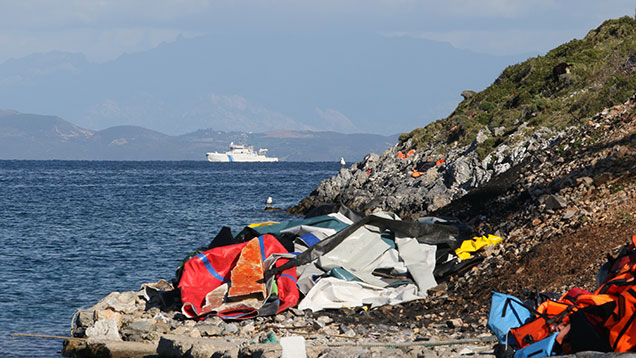Finland to receive relocated asylum seekers from the Mediterranean region

On 15 December 2022, the Government decided that to ease the pressure on the reception systems in the EU Member States in the Mediterranean, Finland will take up to 175 asylum seekers relocated from the region. The asylum seekers can be relocated to Finland if they are likely to be in need of international protection. Priority will be given to vulnerable people, such as unaccompanied minors, single-parent families, persons with medical conditions and persons with disabilities.
Progress in the EU asylum system reform is an important objective for Finland. The EU is striving to advance the reform in stages, providing solidarity balanced with responsibility. A key element of the first stage is a political declaration on solidarity, which the Member States drew up in June, to support the states at the EU’s external borders in the Mediterranean. Relocation is part of the agreed package of measures.
“The states at the EU's external borders in the Mediterranean play a key role in managing migration. The relocation of asylum seekers to other EU Member States affects not only these states’ ability to receive asylum seekers, process applications and prevent irregular secondary movement, but also their willingness to make progress in the reform of the Common European Asylum System,” says Minister of the Interior Krista Mikkonen.
The EU Member States in the Mediterranean have asked other states to adopt relocation as their primary method of showing solidarity. Relocations can help the states to manage migratory pressures and in that way promote migration management throughout the Union.
“It is important for Finland to do its part to help asylum seekers. And because of our geographical location, we may face a situation where we need help from other Member States, whether in the form of relocations or other measures. So I think it is also important for Finland to offer support to other Member States when they need it,” Minister Mikkonen says.
Based on the June declaration, the solidarity mechanism is temporary and voluntary. The EU will review its effectiveness first after six months and again after one year, and it will then make a decision on how to proceed.
Currently, 13 Member States and third countries applying the Schengen acquis have declared their participation in the relocation scheme. In total, they have pledged to relocate approximately 8,000 asylum seekers.
Asylum seekers’ backgrounds are checked before relocation
The Ministry of the Interior, in cooperation with the Finnish Immigration Service, will decide later on a more exact timetable for the relocations and from which countries asylum seekers will be transferred. The Finnish Immigration Service and the Finnish Security and Intelligence Service will check the backgrounds of the individuals before they are relocated to Finland.
The relocations will be carried out in stages, scheduled over the term of the solidarity mechanism, so that the Finnish Immigration Service can ensure that the persons are properly received and that their special needs are met. The actual asylum process will start when the asylum seekers arrive in Finland.
The European Commission supports the Member States taking part in the relocation mechanism through the Asylum, Migration and Integration Fund (AMIF). A Member State will receive a compensation of EUR 10,000 for each asylum seeker relocated from another Member State. The Member State paying the relocation costs is paid a compensation of EUR 500 for each relocated asylum seeker.
Finland already has experience of receiving relocated asylum seekers within the EU, as a decision was made to relocate 175 asylum seekers from the EU Member States in the Mediterranean to Finland in winter 2020. In November 2022, the Government decided that Finland will take ten asylum seekers rescued by the Ocean Viking vessel that docked in France.
Inquiries:
Kukka Krüger, Chief Specialist, tel. +358 295 488 270, [email protected]
Mikko Jalo, Special Adviser, tel. +358 50 304 8522, [email protected] (requests for interviews with the Minister)
Decision in Finnish Valtioneuvoston päätös SM/2022/86